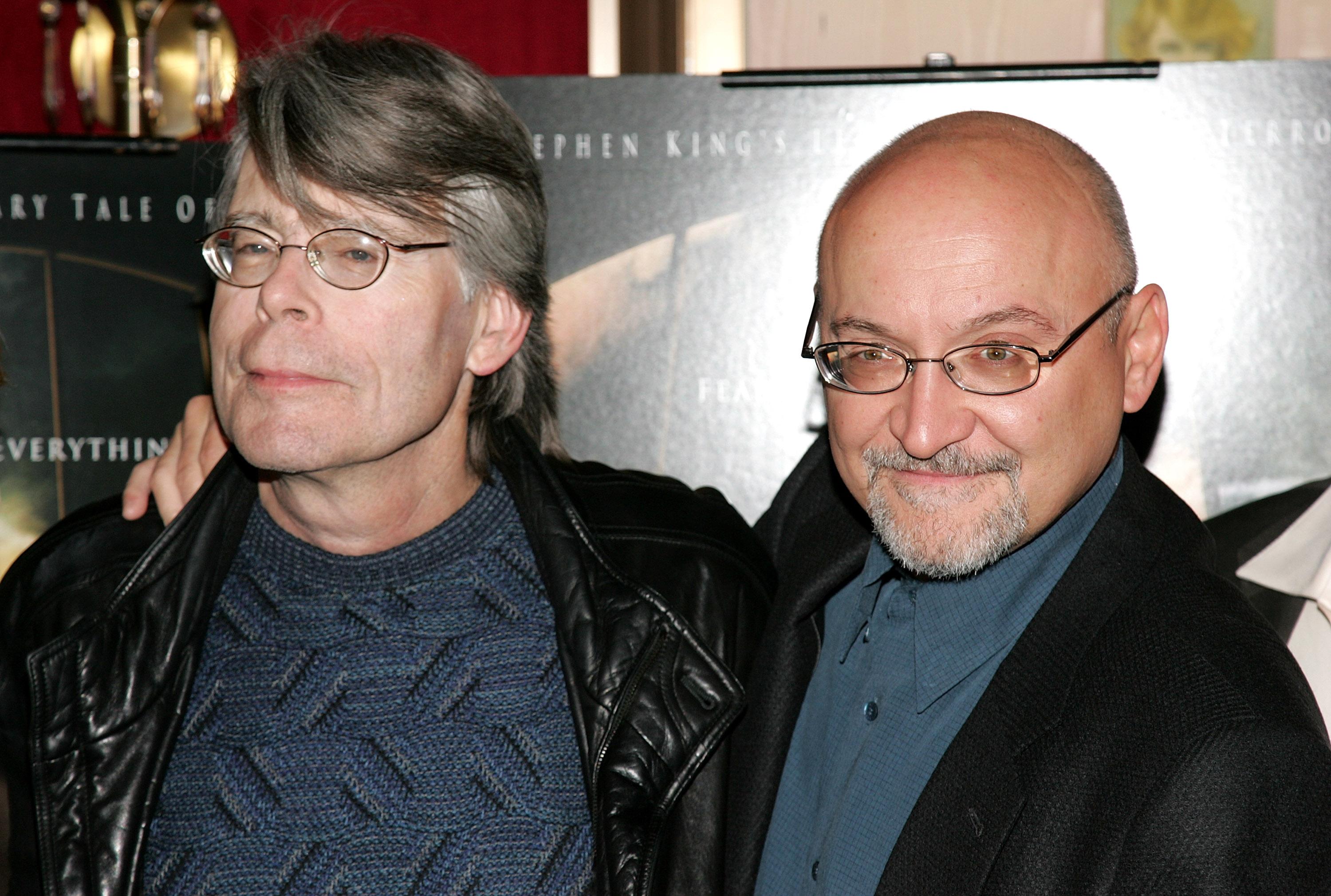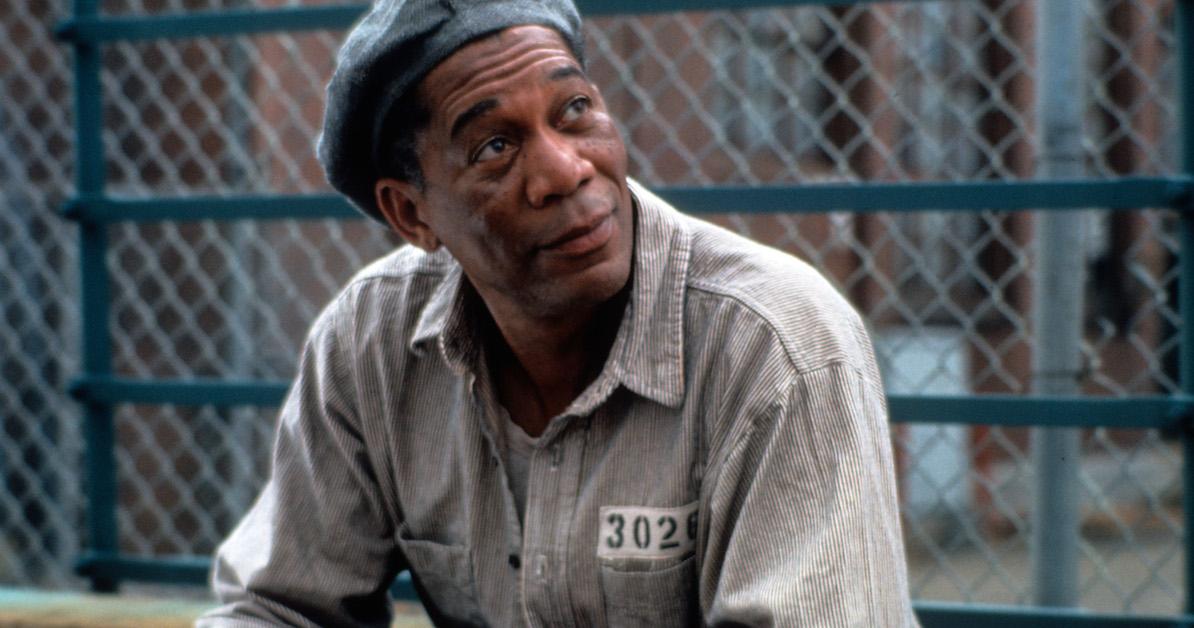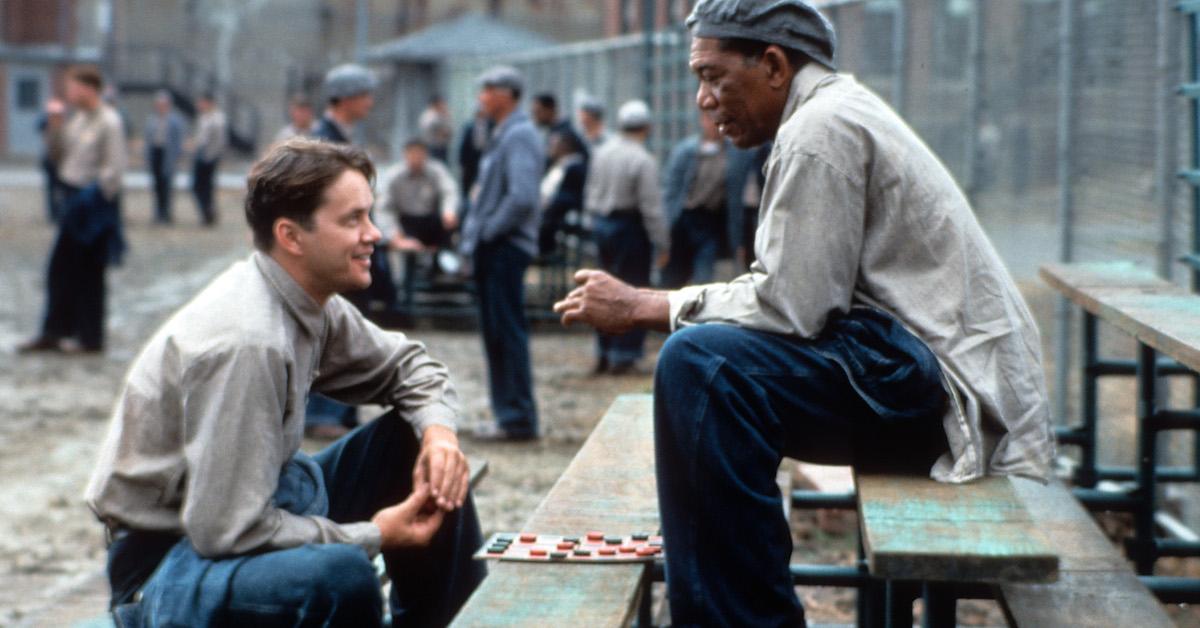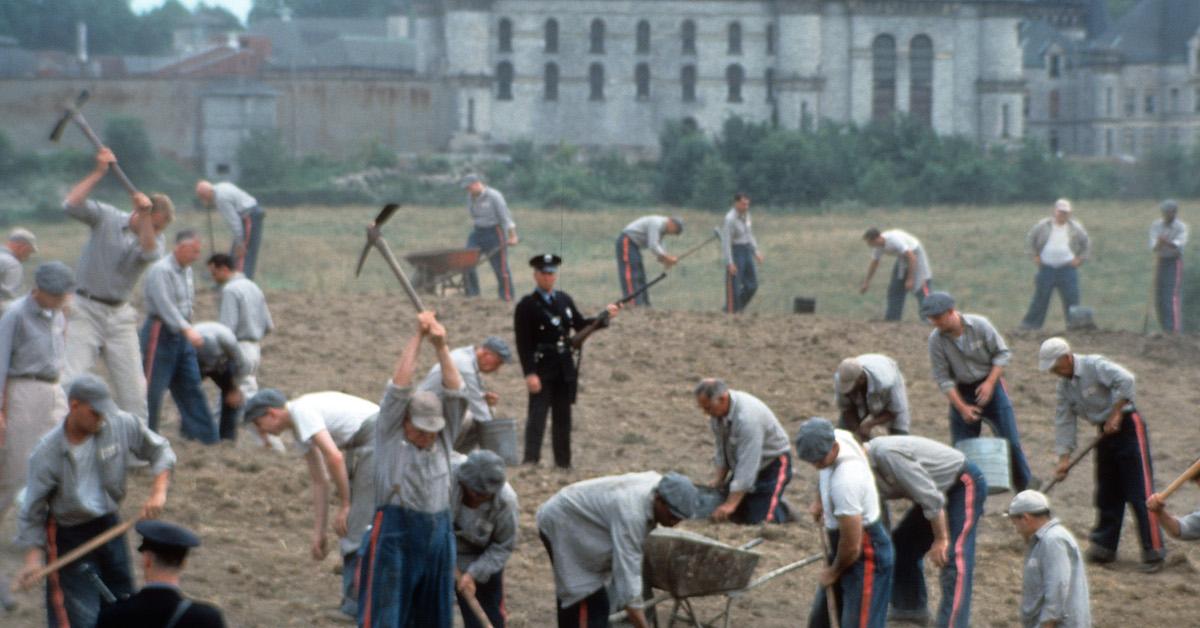'The Shawshank Redemption' Was Almost a Very Different Movie
Updated Nov. 18 2019, 2:14 p.m. ET
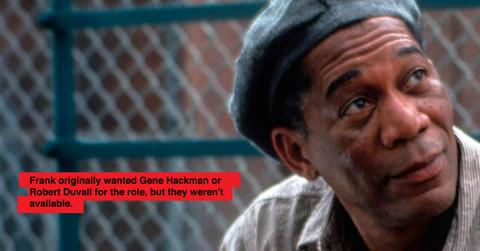
The year 1994 was a banner one for filmmaking. In a 12-month span, Hollywood churned out timeless classics like The Lion King, Forrest Gump, True Lies, Reality Bites, and Clerks. But no movie of that year matches the longevity and acclaim of The Shawshank Redemption.
Though it had meager box office beginnings, the film has achieved classic status. It currently sits at the top of IMDb's top rated films with The Godfather (1972).
In honor of the 24th anniversary of the film, check out some more fun facts about Shawshank, including some very different early casting choices and a costly gamble that could've blown up in the director's face.
Stephen King practically gave the rights away.
Frank Darabont, who adapted the script and directed the movie, purchased the rights to Stephen King’s novella for $1. The story is the first of four in a collection called Different Seasons.
Three out of the four have been adapted for the screen, with the first being Stand By Me (1986), based on The Body. Apt Pupil, adapted from the story of the same name, came out in 1998.
Frank also adapted two more of Stephen's works: The Green Mile (1999) and The Mist (2007).
It was a box-office bomb.
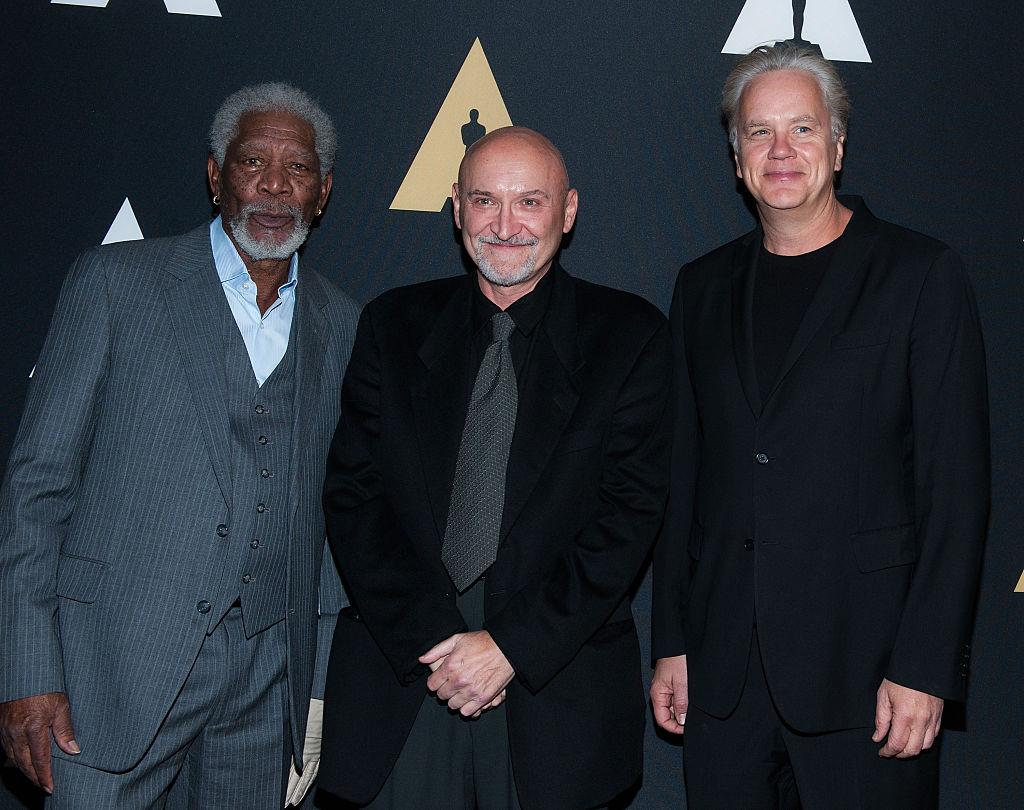
Ironically, the movie didn’t do well when it came out, failing to earn back its budget during its initial screen run. Remember, this year also gave us Best Picture winner Forrest Gump and the game-changing Pulp Fiction, and audiences weren't feeling a somber prison drama. But through positive reviews, awards season buzz, and word of mouth, it became the most rented film of 1995. Then, when Ted Turner bought Castle Rock, he gained the rights to air the film on TNT for almost nothing, so he did. A lot. Its popularity soared as it ran several times a week on the basic cable channel.
Frank Darabont's script fell into exactly the right hands.
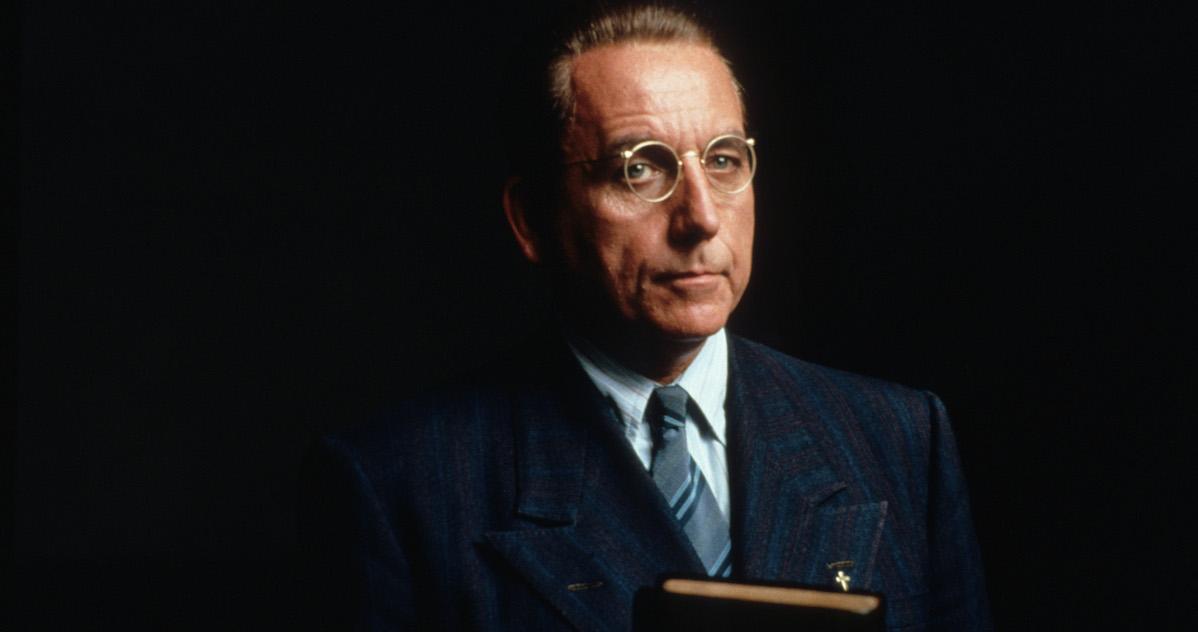
Though the script was hardly the blockbuster that studios were looking for, it fell into the lap of Liz Glotzer at Castle Rock Entertainment, who just so happened to be obsessed with prison movies. "I like reading about prison for some reasons," she told Vanity Fair. Any script that came in that was a prison movies, [my coworkers] would say, 'Oh, Liz'll read it.'"
She called it "the best script I'd ever read," a sentiment echoed by stars Morgan Freeman and Tim Robbins. Liz loved the project so much she threatened to quit if it wasn't greenlit.
Frank Darabont turned down $3M to direct it.
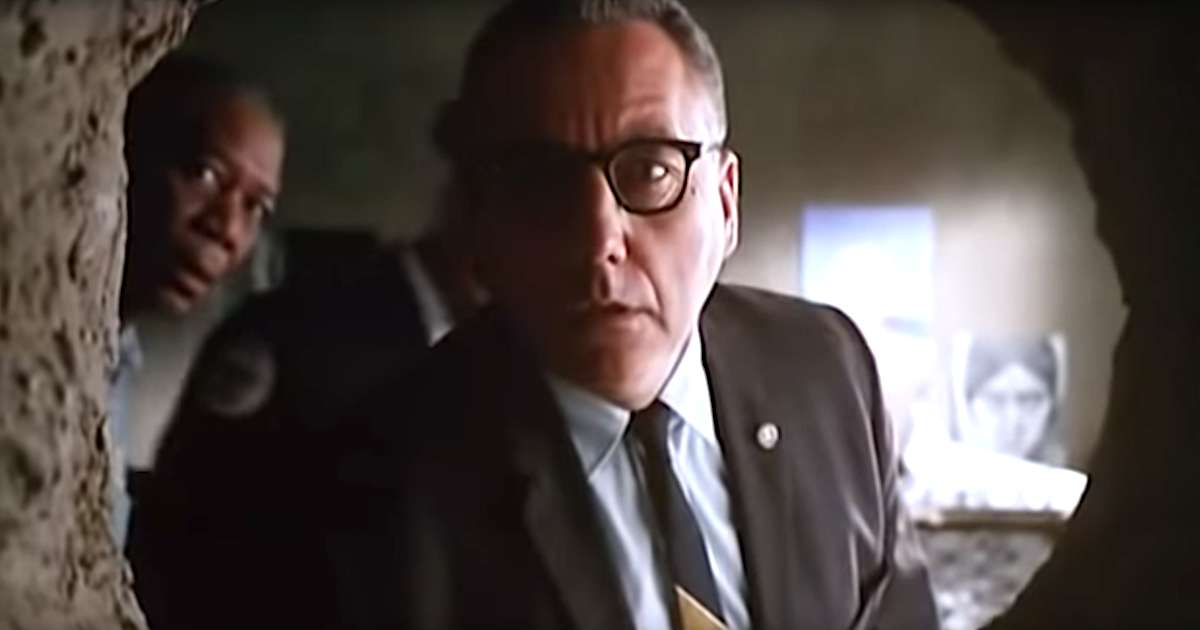
I don't know many people who would turn down millions to not work, but it appears Frank did just that. Director Rob Reiner, who directed Stand By Me, liked his script so much he offered the Walking Dead creator a reported $3M for it. Though he was "tormented" over the decision, ultimately he chose to make the movie he wanted, even if he never earned a cent for it.
Despite his disappointment over losing the project, Rob mentored the first-time director throughout production. However, he made sure not to overstep and derail Frank's vision.
Morgan Freeman was definitely not typecast.
In the novella, Red describes himself as an Irishman with greying red hair. Frank originally wanted Gene Hackman or Robert Duvall for the role, but they weren't available. Liz made the race-blind suggestion of Morgan, and the rest is history. Seriously, can you imagine anyone else doing that voiceover?
These A-listers who turned the movie down must be kicking themselves still.
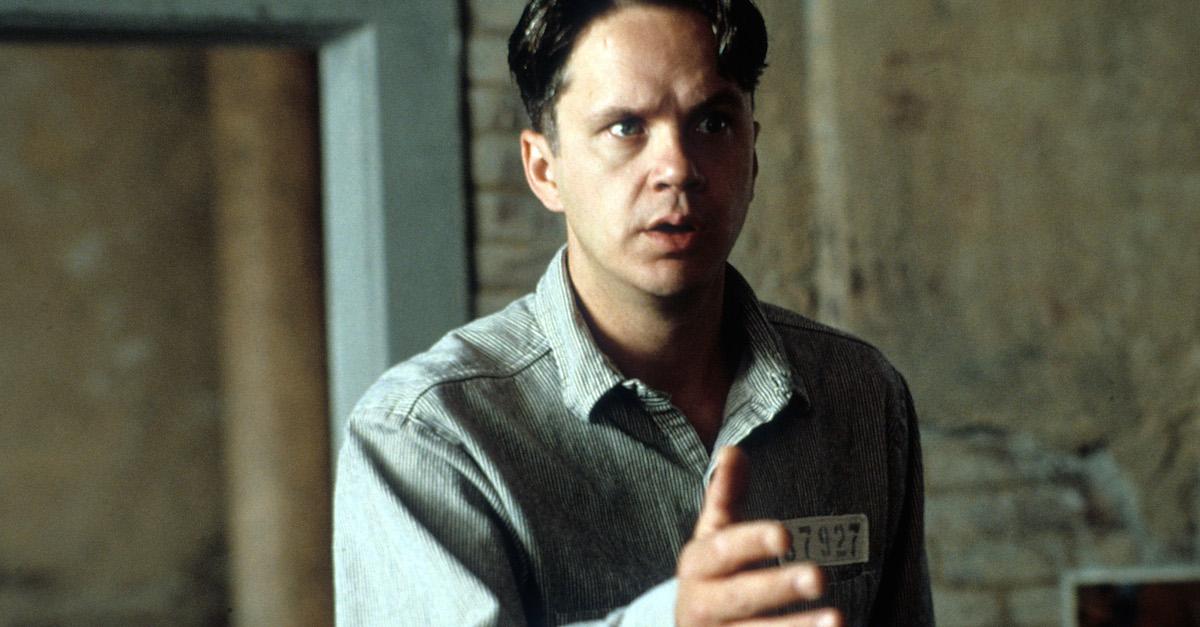
The role of Andy Dufresne was offered to Tom Hanks, Kevin Costner, and Tom Cruise, who all passed. The Mission Impossible star went so far as to do a table read but backed out, not wanting to work with a first-time director.
Tom Hanks must have seen the error of his ways, since he signed on for Frank's follow-up Stephen King prison drama, The Green Mile.
Morgan suggested Tim Robbins for the role.
In turn, Tim suggested cinematographer Roger Deakins, with whom he worked on The Hudsucker Proxy. He felt his years of experience would balance out how green Frank was.
They filmed in an actual prison.
Though they had nearby sets for the cellblocks and other interior shots, the scenes set in the warden's office, along with establishing shots and a few other scenes were shot in an actual prison: Ohio State Reformatory in Mansfield. The facility had been shut down three years prior for inhumane living conditions, which the actors said made filming there 15 to 18 hours a day, six days a weak, even more brutal.
If you find yourself in Buxton, Maine, (or Mansfield, Ohio) don't bother looking for that hayfield.
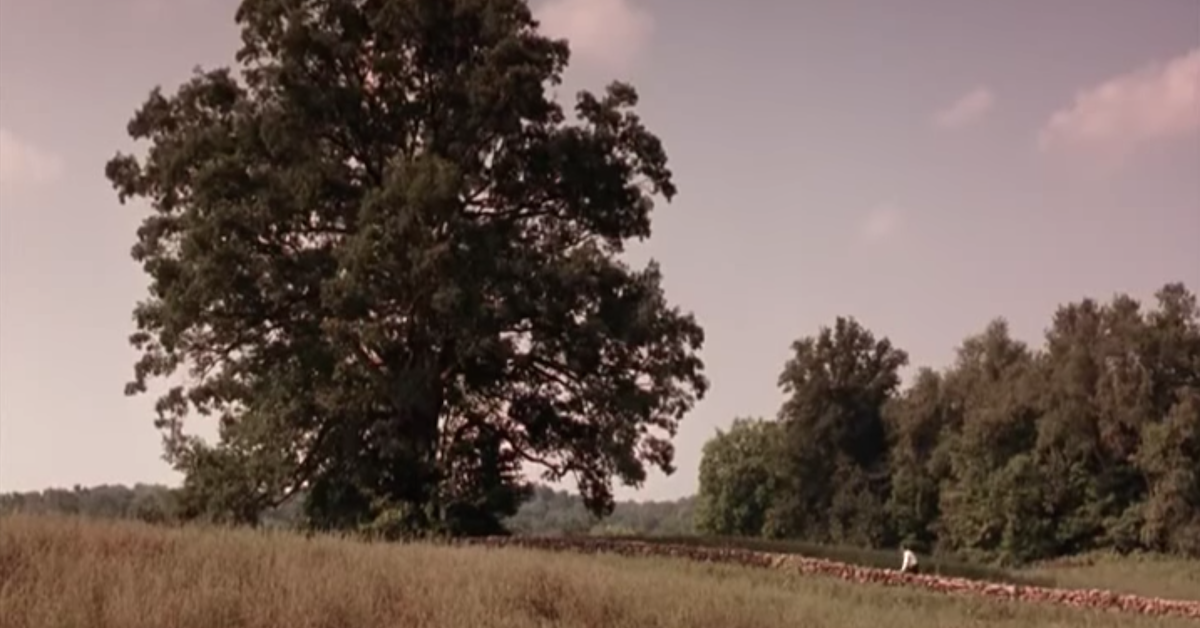
The rock wall where Andy hides money for Red was constructed for the film in Mansfield, OH, near the prison and other sets. The art department built the wall by hand over the course of several months. It stood for years until the farmer who owned the land sold it piece by piece on eBay.
The white oak at the end of the wall is also gone. It was split in two by lightning in 2011 and was knocked down completely by a storm in 2016.
Brooks and Red have grisly backstories.
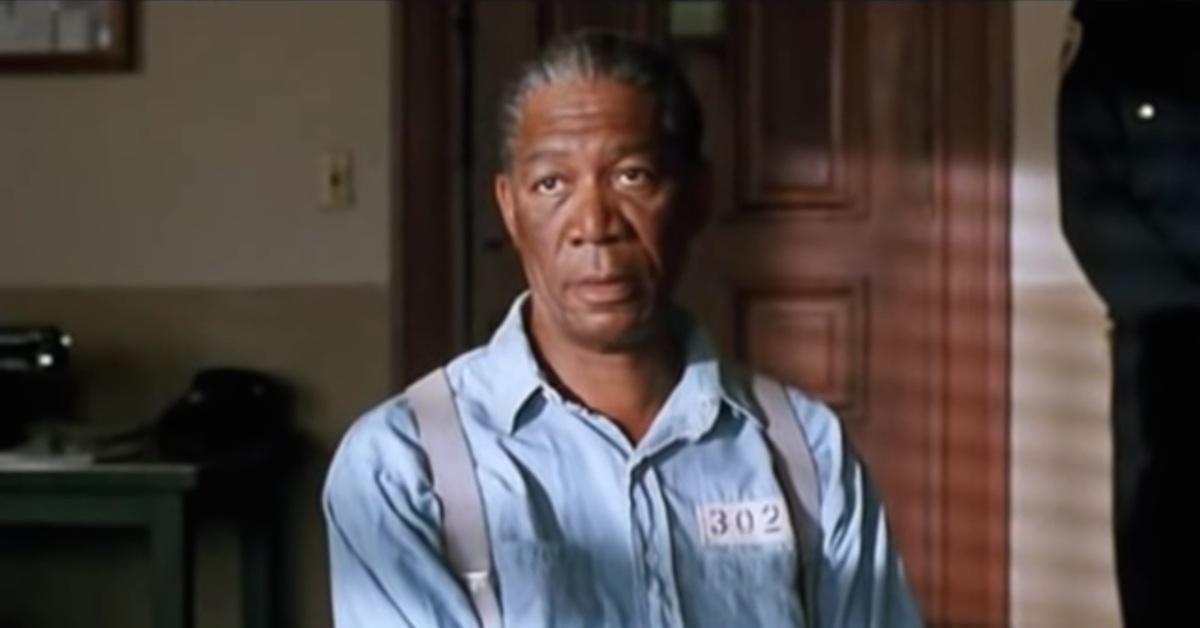
You don't learn much about the inmates' crimes in Shawshank, which probably helps them remain relatable and sympathetic to audiences. However, the novella gets into it, and it's rough. Red murdered his wife, son, and a neighbor kid in an attempt to collect on his wife's life insurance policy. While he intended to kill his wife, he didn't know the kids would be in the car with her.
Brooks' life sentence stemmed from murdering his wife and daughter after a bad game of poker. Kind of changes how you look at that sweet librarian with the crow, huh?
The American Humane Society was a bit extra with their supervision.
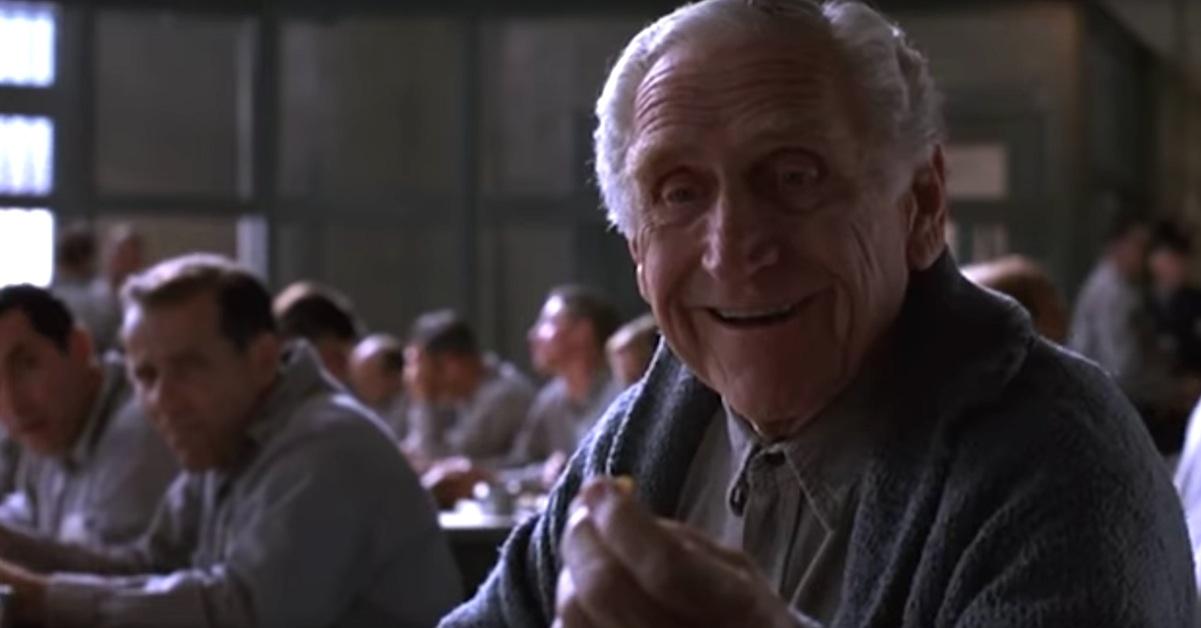
As is the case with most films featuring animal actors, AHS oversaw all scenes with Brooks' crow, Jake. However, they weren't just looking out for the bird. They also balked at the idea of feeding him a live maggot on camera... because it was cruel to the maggot. The maggot in the film died of natural causes, you'll be relieved to know.
The escape scene wasn't nearly as gross as it seems.
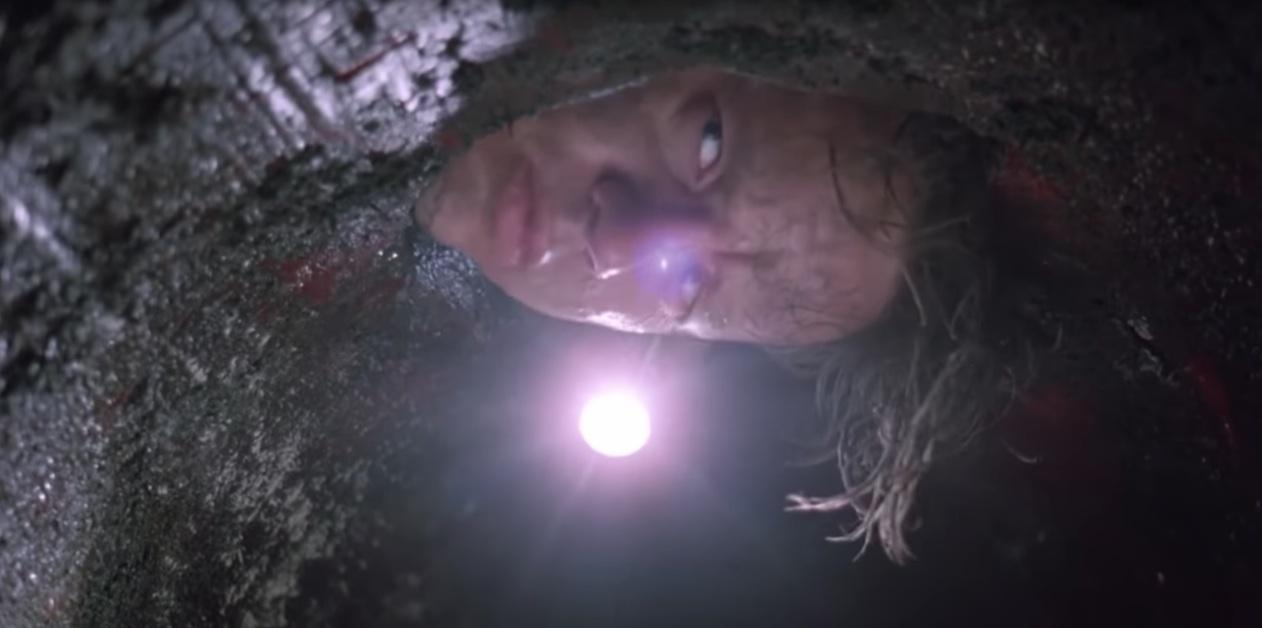
I gag a little every time I watch Andy crawl through "five hundred yards of (#$&-smelling foulness I can't even imagine" in the third act. However, thanks to movie magic, the experience wasn't nearly as gross for Tim as it looks. The "sewage" is a mixture of water, sawdust, and chocolate syrup, so the scent was probably quite pleasant.
